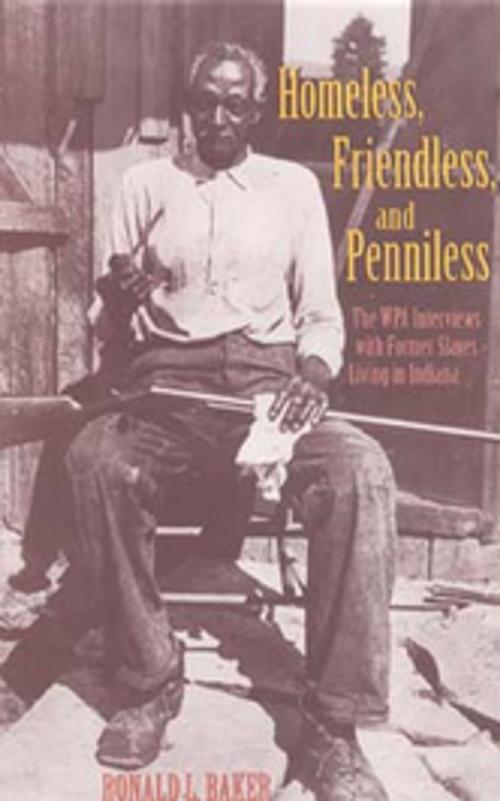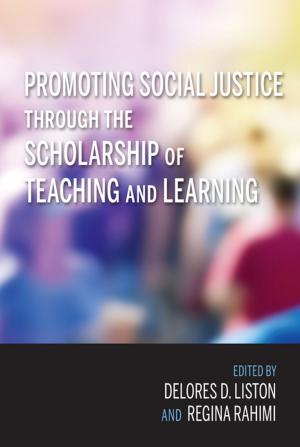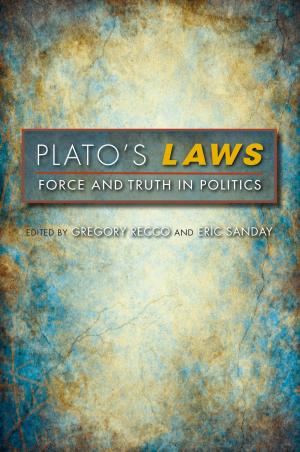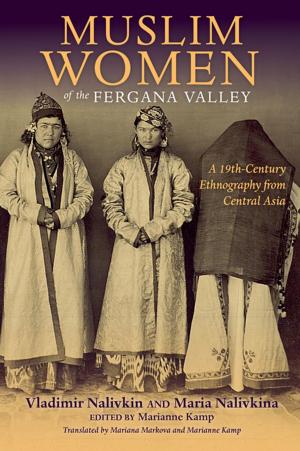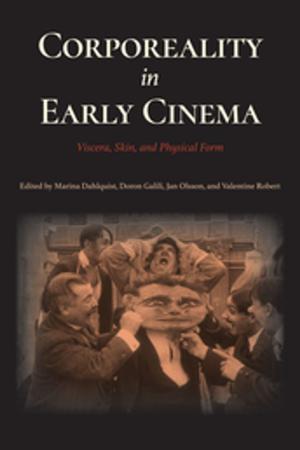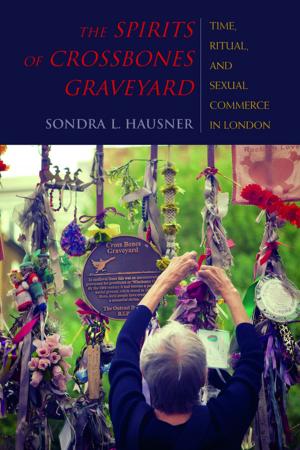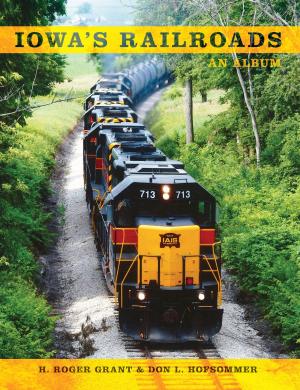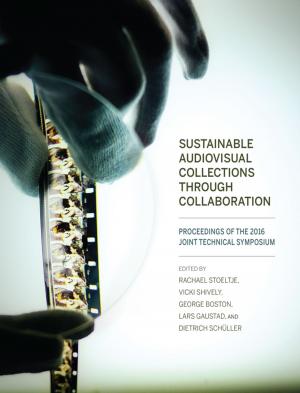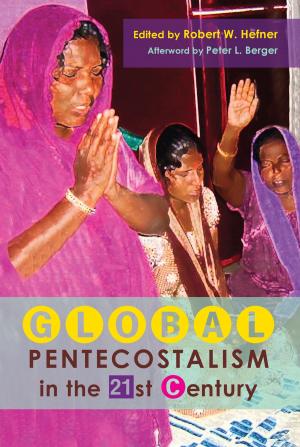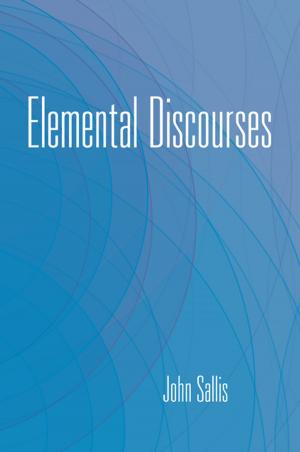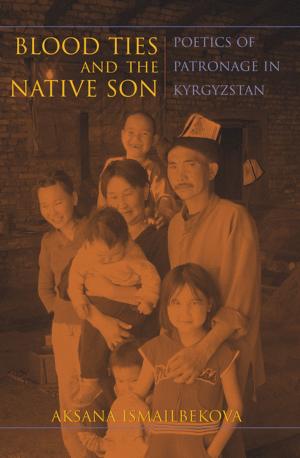Homeless, Friendless, and Penniless
The WPA Interviews with Former Slaves Living in Indiana
Nonfiction, Social & Cultural Studies, Social Science, Folklore & Mythology, Cultural Studies, African-American Studies, History, Americas, United States| Author: | Ronald L. Baker | ISBN: | 9780253028570 |
| Publisher: | Indiana University Press | Publication: | October 22, 2000 |
| Imprint: | Indiana University Press | Language: | English |
| Author: | Ronald L. Baker |
| ISBN: | 9780253028570 |
| Publisher: | Indiana University Press |
| Publication: | October 22, 2000 |
| Imprint: | Indiana University Press |
| Language: | English |
Homeless, Friendless, and Penniless
The WPA Interviews with Former Slaves Living in Indiana
Ronald L. Baker
Lives of former slaves in their own words, published for the first time.
Based on a collection of interviews conducted in the late 1930s, Homeless, Friendless, and Penniless is an invaluable record of the lives and thoughts of former slaves who moved to Indiana after the Civil War and made significant contributions to the evolving patchwork of Hoosier culture.
The Indiana slave narratives provide a glimpse of slavery as remembered by those who experienced it, preserving insiders’ views of a tragic chapter in American history. Though they were living in Indiana at the time of the interviews, these African Americans been enslaved in 11 different states from the Carolinas to Louisiana. The interviews deal with life and work on the plantation; the treatment of slaves; escaping from slavery; education, religion, and slave folklore; and recollections of the Civil War. Just as important, the interviews reveal how former slaves fared in Indiana after the Civil War and during the Depression. Some became ministers, a few became educators, and one became a physician; but many lived in poverty and survived on Christian faith and small government pensions.
Ronald L. Baker, Chairperson and Professor of English at Indiana State University, is author of many books, including Hoosier Folk Legends and From Needmore to Prosperity: Hoosier Place Names in Folklore and History (both from Indiana University Press. He is co-author of Indiana Place Names with Marvin Carmony and editor of The Folklore Historian, the journal of the Folklore and History Section of the American Folklore Society.
Contents
Part One: A Folk History of Slavery
Background of the WPA Interviews
Presentation of Material
Living and Working on the Plantation
The Treatment of Slaves
Escaping from Slavery
Education
Religion
Folklore
Recoll
Homeless, Friendless, and Penniless
The WPA Interviews with Former Slaves Living in Indiana
Ronald L. Baker
Lives of former slaves in their own words, published for the first time.
Based on a collection of interviews conducted in the late 1930s, Homeless, Friendless, and Penniless is an invaluable record of the lives and thoughts of former slaves who moved to Indiana after the Civil War and made significant contributions to the evolving patchwork of Hoosier culture.
The Indiana slave narratives provide a glimpse of slavery as remembered by those who experienced it, preserving insiders’ views of a tragic chapter in American history. Though they were living in Indiana at the time of the interviews, these African Americans been enslaved in 11 different states from the Carolinas to Louisiana. The interviews deal with life and work on the plantation; the treatment of slaves; escaping from slavery; education, religion, and slave folklore; and recollections of the Civil War. Just as important, the interviews reveal how former slaves fared in Indiana after the Civil War and during the Depression. Some became ministers, a few became educators, and one became a physician; but many lived in poverty and survived on Christian faith and small government pensions.
Ronald L. Baker, Chairperson and Professor of English at Indiana State University, is author of many books, including Hoosier Folk Legends and From Needmore to Prosperity: Hoosier Place Names in Folklore and History (both from Indiana University Press. He is co-author of Indiana Place Names with Marvin Carmony and editor of The Folklore Historian, the journal of the Folklore and History Section of the American Folklore Society.
Contents
Part One: A Folk History of Slavery
Background of the WPA Interviews
Presentation of Material
Living and Working on the Plantation
The Treatment of Slaves
Escaping from Slavery
Education
Religion
Folklore
Recoll
